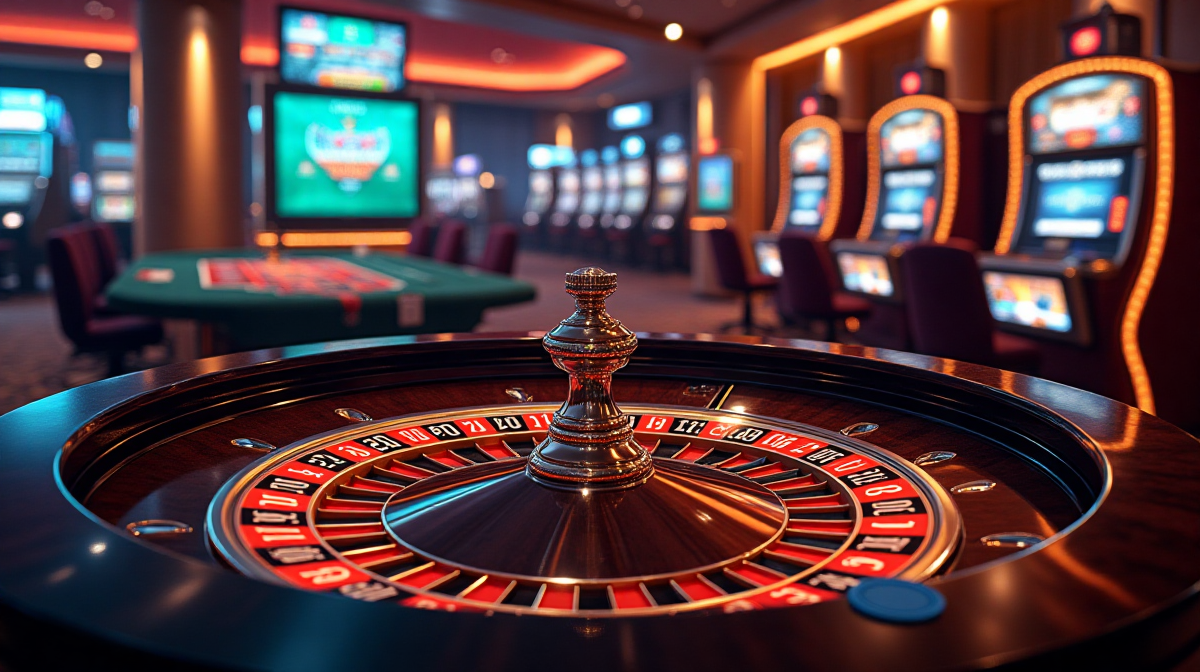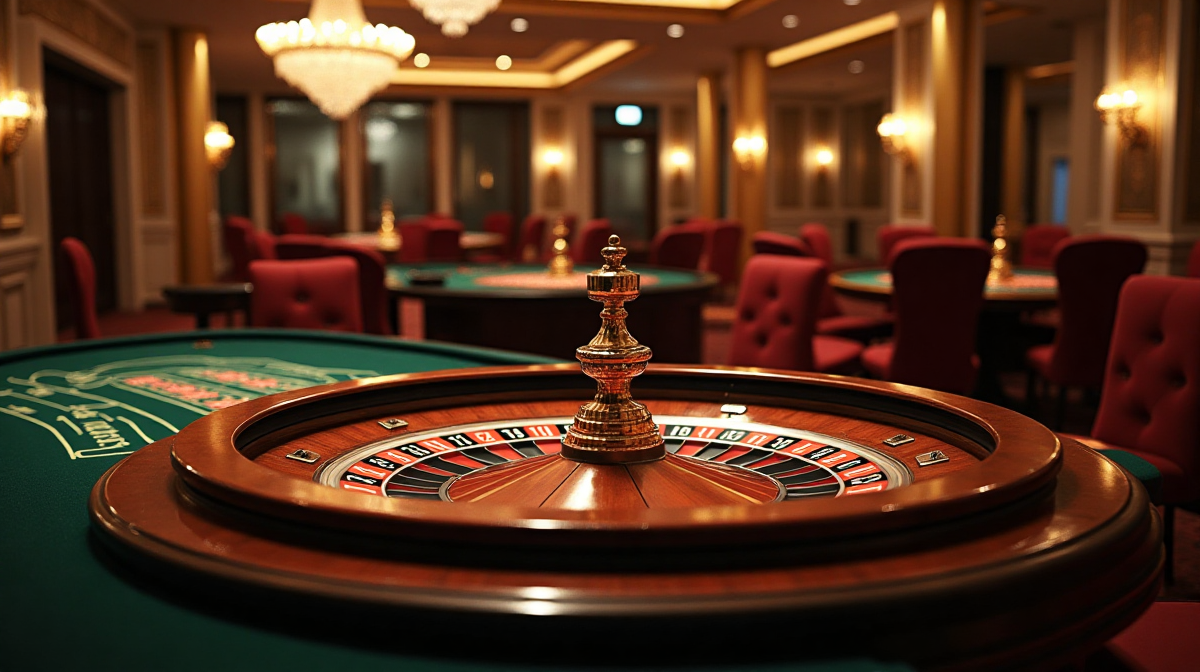Roulette Casino Game: Beat the Odds!
The Allure of Roulette: A History & Overview
Roulette, a word derived from the French meaning “little wheel,” has captivated gamblers for centuries. Its origins can be traced back to 17th-century France, with Blaise Pascal, the renowned mathematician and physicist, credited with a precursor to the modern game. Over time, the roulette wheel evolved, eventually finding its place in the lavish casinos of Europe and, later, the world. The image of the spinning wheel and the anticipation of where the ball will land is iconic, representing the thrill of chance and the potential for significant rewards.
Why Roulette Remains Popular in Modern Casinos
Despite the advent of countless casino games, roulette maintains its enduring appeal. Its simplicity is a key factor – the rules are easy to learn, even for beginners. However, beneath the surface lies a surprising depth, offering a variety of betting options that cater to different risk tolerances. The social aspect of land-based casinos, with players gathered around the table, adds to the excitement. And, of course, the accessibility of online roulette, including platforms like those offering 365 online bet options, has broadened its reach considerably. The allure of a quick win, and the sheer entertainment value, continue to draw players in.
Debunking the Myth: Can You Really Beat Roulette?
Let's be clear: roulette is fundamentally a game of chance. There’s no foolproof system to guarantee consistent wins. The house always has an edge. However, understanding the game's mechanics, employing sound bankroll management, and making informed betting choices can significantly improve your odds and extend your playtime. Many seek strategies, hoping to overcome the inherent randomness. Some even explore systems attempting to predict outcomes, but the reality is that each spin is independent. Don't fall for claims promising a guaranteed win – especially when considering options like no way out the roulette strategies advertised online.
Understanding the Basics of Roulette
The Roulette Wheel: American vs. European & French
The roulette wheel is the heart of the game. The most common variations are American, European, and French roulette. The primary difference lies in the number of slots on the wheel. The American wheel has 38 slots (1-36, plus 0 and 00), while the European and French wheels have 37 slots (1-36, plus a single 0).
House Edge Differences: A Crucial Comparison
This difference in slots has a significant impact on the house edge. The American roulette wheel has a higher house edge of 5.26%, while the European and French wheels boast a more favorable house edge of 2.7%. This means that, over the long run, the casino is expected to retain 5.26% of all wagers on American roulette and 2.7% on European/French roulette. If you’re looking to maximize your chances, opting for European or French roulette is always the smarter play. Platforms offering tennis bet 365 often include a variety of roulette options, so choosing wisely is key.
Roulette Bets Explained: Inside Bets vs. Outside Bets
Roulette bets are broadly categorized as inside bets and outside bets. Inside bets are placed on specific numbers or small groups of numbers on the inner section of the table, while outside bets are placed on larger groups of numbers on the outer section.
Straight Up, Split, Street, Corner, Line Bets – Breakdown & Payouts
- Straight Up: Betting on a single number (35:1 payout)
- Split: Betting on two adjacent numbers (17:1 payout)
- Street: Betting on a row of three numbers (11:1 payout)
- Corner: Betting on four numbers that form a square (8:1 payout)
- Line: Betting on two adjacent rows of three numbers (5:1 payout)
Column, Dozen, Red/Black, Odd/Even, High/Low Bets – Breakdown & Payouts
- Column: Betting on one of the three vertical columns of numbers (2:1 payout)
- Dozen: Betting on one of the three groups of twelve numbers (2:1 payout)
- Red/Black: Betting on whether the winning number is red or black (1:1 payout)
- Odd/Even: Betting on whether the winning number is odd or even (1:1 payout)
- High/Low: Betting on whether the winning number is between 1-18 (low) or 19-36 (high) (1:1 payout)
Roulette Table Layout: Demystifying the Numbers & Sections
The roulette table layout may seem daunting at first, but it's logically organized. The numbers 1-36 are arranged in a seemingly random order, alternating between red and black. The 0 (and 00 on the American wheel) are typically green. The outer sections of the table correspond to the outside bets, offering a clearer visual representation of the betting options.

Strategies for Playing Roulette – Exploring the Possibilities
Progressive Betting Systems
Progressive betting systems involve adjusting your bet size based on previous outcomes. They aim to capitalize on winning streaks or recover losses.
Martingale System: Risks & Potential Rewards
The Martingale system is perhaps the most well-known. It involves doubling your bet after each loss, with the goal of recouping all previous losses with a single win. While seemingly effective, it requires a substantial bankroll and can quickly lead to exceeding table limits.
Reverse Martingale System : A Less Risky Approach?
The Paroli system, also known as the reverse Martingale, involves doubling your bet after each win. It capitalizes on winning streaks while limiting losses during losing streaks. It's generally considered less risky than the Martingale.
D'Alembert System: A More Conservative Strategy
The D'Alembert system involves increasing your bet by one unit after a loss and decreasing it by one unit after a win. It's a more conservative approach than the Martingale, but it still doesn't guarantee profits.
Fibonacci System: Using the Sequence to Your Advantage
The Fibonacci system utilizes the Fibonacci sequence (1, 1, 2, 3, 5, 8, 13…) to determine your bet size. You move forward in the sequence after a loss and backward after a win.
Flat Betting Strategies & Bankroll Management
Flat betting involves wagering the same amount on each spin, regardless of previous outcomes. It’s a more conservative approach that prioritizes bankroll preservation.
The Importance of Setting Limits
Before you start playing, establish clear win and loss limits. Once you reach either limit, stop playing. This helps prevent chasing losses or getting carried away by wins.
Choosing a Realistic Stake Size
Your stake size should be a small percentage of your total bankroll (e.g., 1-5%). This allows you to withstand losing streaks and enjoy extended playtime. Many platforms like bet 365 offer tools to help manage your stakes.
Recognizing Roulette Patterns
Hot & Cold Numbers – Statistics vs. Randomness
The idea that certain numbers are hot (appearing frequently) or cold (appearing infrequently) is a common misconception. Roulette is a random game, and past results have no bearing on future outcomes.
Visual Tracking & Pattern Recognition
Attempting to identify patterns by visually tracking the wheel or previous results is also futile. The wheel and ball are subject to numerous variables that make accurate prediction impossible.

Roulette Variations & Where to Play
Online Roulette vs. Live Dealer Roulette
Benefits & Drawbacks of Each
Online roulette offers convenience and affordability, with lower minimum bets. Live dealer roulette provides a more immersive experience, with a real dealer and a live casino environment. However, live dealer games typically have higher minimum bets.
Popular Online Roulette Providers
Numerous online casinos offer roulette games. Some popular providers include Playtech, NetEnt, Evolution Gaming, and Microgaming. Many of these are available through platforms like 365 online bet.
Mobile Roulette: Playing on the Go
Mobile roulette allows you to enjoy the game on your smartphone or tablet. Most online casinos offer mobile-optimized versions of their roulette games.
Understanding RNG & Fair Play
Reputable online casinos use Random Number Generators (RNGs) to ensure fair and random outcomes. These RNGs are regularly audited by independent testing agencies.
Advanced Concepts & Tips
European Roulette: The Smart Choice for Players
As previously mentioned, European roulette offers a lower house edge than American roulette, making it the preferred choice for serious players.
Bankroll Management in Detail: Calculating Optimal Bet Sizes
Calculating your optimal bet size involves considering your bankroll, desired playtime, and risk tolerance. A general rule of thumb is to bet no more than 1-5% of your bankroll on each spin.
Minimizing the House Edge: Focusing on Low-Edge Bets
Stick to outside bets, such as red/black, odd/even, and high/low, as they have the lowest house edge.
Responsible Gambling: Playing Roulette Safely
Set limits, avoid chasing losses, and never gamble with money you can't afford to lose. If you feel you may have a gambling problem, seek help from a responsible gambling organization. Remember, enjoying the roulette casino game should be a fun and entertaining experience.
Conclusion
Roulette: A Game of Chance, Skill, and Responsible Play
Roulette is a captivating casino game that combines chance, strategy, and responsible play. While there's no guaranteed way to win, understanding the game's mechanics, employing sound bankroll management, and making informed betting choices can enhance your experience and improve your odds.
Final Thoughts: Can You “Beat” the Odds? A Realistic Perspective.
Ultimately, roulette is a game of chance. You can't beat the house edge, but you can play smartly and responsibly to maximize your enjoyment and minimize your losses. Remember to approach the game as a form of entertainment, not a source of income.
Resources for Further Learning
(Links to responsible gambling resources, roulette strategy guides, and casino reviews would be included here.)

